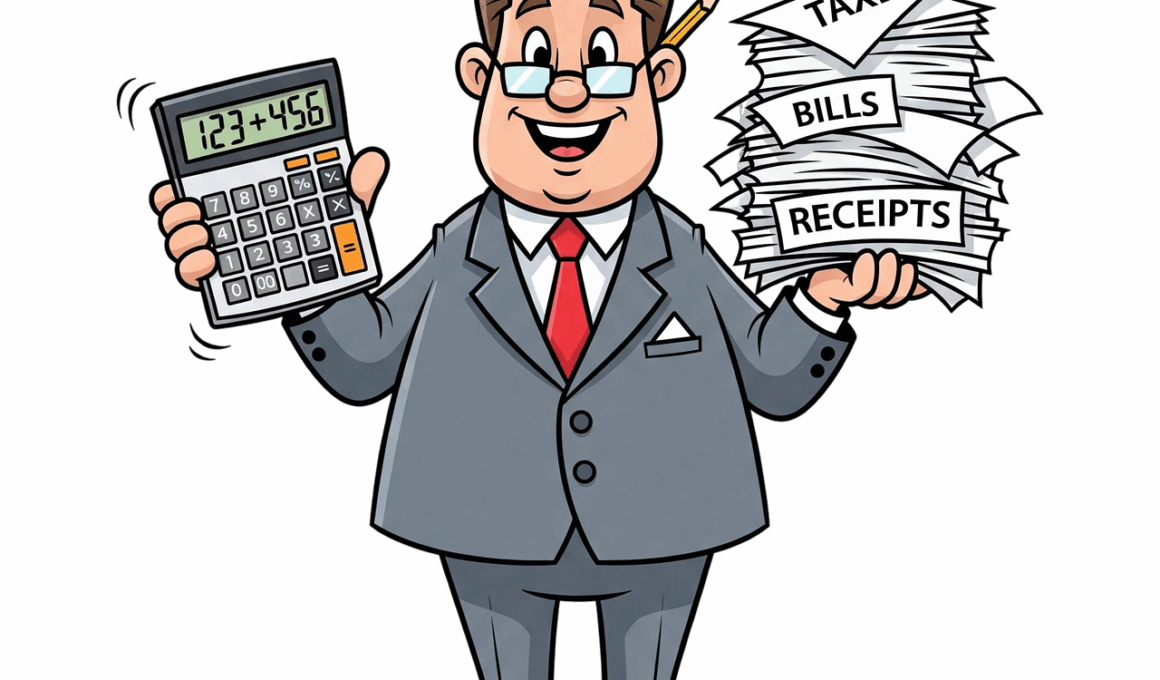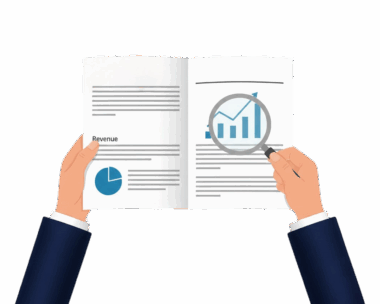Budgeting 101: A Beginner’s Guide to Financial Planning
Budgeting is essential for effective financial planning, yet many individuals find it daunting. A budget serves as a financial roadmap, guiding spending and saving decisions. It enables individuals to prioritize expenses, ensuring that necessary costs are managed first. When creating a budget, it’s important to include all sources of income, including salaries, bonuses, and any side income. Maintain a clear list of expected expenses, which can be categorized into fixed, variable, and discretionary costs. This approach helps in understanding where the money goes. You can use spreadsheets or budgeting apps to assemble this information efficiently. The goal is to create a balanced budget that aligns expenditures with incomes. Additionally, staying committed to a budget requires consistent monitoring and adjustments. By reviewing the budget regularly, individuals can track their financial progress and adjust for any unexpected changes. This process is a fundamental skill in managing personal finances effectively. Once you draft your budget, seek to adhere to it as closely as possible, making necessary adjustments only when genuinely required. Budgeting empowers you to reach financial goals while minimizing unnecessary stress and financial pitfalls over time.
To create an effective budget, start by identifying your financial goals clearly. Are you seeking to save for a vacation, pay off debt, or create an emergency fund? Understanding your objectives significantly influences your budgeting approach. Setting specific, measurable, achievable, relevant, and time-bound (SMART) goals can help guide your financial decisions. Next, analyze past spending patterns to forecast future expenses. By reviewing previous months’ expenditures, you can gain insights on areas that may require adjustments. It’s beneficial to categorize your expenses into necessities and luxuries. This distinction allows you to prioritize essential spending while identifying potential cutbacks. Using tools like budgeting software or apps can simplify this process. Several free and paid options exist that offer customizable features, helping you track your finances. Regularly revisiting and refining your budget is critical. Life changes, such as a new job or family changes, can influence your financial situation. Update your budget accordingly to reflect these alterations. The flexibility of a budget is quintessential to accommodating variable financial circumstances and ensuring lasting success in achieving financial stability.
Key Components of a Budget
Understanding the key components of a budget can enhance your financial literacy. Start with your income details that constitute all sources of revenue. This includes primary income, secondary income, and any passive income streams. Following this, outline all monthly expenses. Categorizing these expenses is important for effective management. Fixed expenses typically remain the same each month, including rent or mortgage payments. Variable expenses fluctuate, such as groceries, entertainment, and transportation costs. Discretionary spending is often where individuals overspend, so being mindful here can lead to significant savings. After listing these components, compare total income to total expenses. This will highlight whether you’re living within your means or overspending. If expenditures exceed income, consider areas for potential cuts, especially in discretionary categories. The design of your budget should not only track past expenses, but also plan for upcoming costs or one-time purchases. Anticipating these expenses means you will be ready when they arise. Setting aside a portion of your income for savings is crucial and should be factored into your overall budget.
Once you have a baseline budget drafted, it’s time to implement it into your daily routine. Tracking your spending is integral to adhering to your budget. Whether using a spreadsheet, app, or written ledger, be diligent in recording every expense. Regular updates help you remain accountable and aware of your financial habits. This could also highlight trends that you may want to change. Consider setting up alerts to remind yourself about approaching budget limits, or review your spending weekly. Furthermore, always ensure that you reconcile your budget with actual spending monthly to identify variances. This process may take time, but consistency will lead to improved financial management. Once you recognize your patterns, addressing overspending becomes easier. It can be beneficial to challenge yourself to reduce spending in specific categories or find creative ways to save. Additionally, celebrate small achievements along the way. Each milestone, such as sticking to your budget for a month, can motivate you to continue. Peer accountability can also help; consider sharing your goals with a friend or family member for added encouragement.
Emergency Funds and Savings
Building an emergency fund is a vital step in mastering budgeting. This fund acts as a financial cushion in unexpected scenarios, such as job loss or medical emergencies. Most financial experts recommend saving three to six months’ worth of expenses. Allocate a portion of your monthly income toward this fund until it reaches your target amount. Concurrently, consider contributing to retirement savings as part of your budget. The earlier you start saving, the more growth your investments can accumulate through compound interest. Various retirement accounts, such as 401(k)s or IRAs, provide tax advantages and can enhance your savings potential. Furthermore, the concept of “paying yourself first” advocates prioritizing savings before considering other expenses. This approach embeds savings into your financial routine, making it second nature. Review and adjust your savings goals every few months to ensure they align with your overall financial objectives. Set realistic expectations for how quickly you want to build your emergency fund and retirement savings. The discipline developed through budgeting not only protects your financial future, it also fosters a healthier relationship with money.
As you become more comfortable with your budgeting strategy, consider exploring additional financial planning tools to enhance your knowledge. Various resources online, including blogs, podcasts, and webinars, can provide valuable insights into advanced budgeting techniques. Learning about investment strategies may broaden your financial horizon and increase your future wealth. Look for community workshops on financial management; such settings often provide expertise that can support your budgeting strategy. Additionally, networking with others who are financially savvy can further motivate you to stay on track. Podcasts featuring financial planners can deliver fresh perspectives and actionable tips. Engaging with a financial advisor may yield personalized budgeting advice tailored to your distinct situation. Seek professional services if your financial situation becomes overly complex. A knowledgeable advisor can assist with investment strategies and tax planning while ensuring your budget remains efficient. Finally, stay committed to continuous improvement; reviewing financial goals regularly and adjusting them in response to changing circumstances is crucial. Commit to lifelong learning in budgeting, planning, and personal finance to thrive in achieving your financial independence.
Conclusion and Next Steps
By now, you should have a clear understanding of how to create and maintain a budget effectively. Budgeting can empower you to take control of your finances, manage expenses, and meet financial goals. Start small, focusing on essential components before expanding your budget equations. Ensure that your financial objectives and spending habits are aligned for maximum effectiveness. As you gain confidence in your budgeting abilities, don’t hesitate to adapt your approaches. Financial situations are fluid; thus, budgets should reflect current realities and future aspirations. Regular assessment and adjustments are critical for long-term success. Embrace the idea that budgeting is not merely a chore, but an essential skill that leads to financial well-being. Continue to seek out educational resources that deepen your understanding of personal finance. Aim for milestones that promote growth and ensure accountability. Share your successes with friends or family, fostering a supportive environment for your goals. Building a budget isn’t solely about restriction; it’s a pathway to financial freedom. Embrace this opportunity to improve your financial literacy, develop lasting habits, and thrive on your journey toward mastering personal finance.
Your journey into budgeting doesn’t end here. Consider using budgeting tools or applications that align with your personal preference. Many people find visualizing their finances through apps simplifies budgeting. Applications can help automate tracking, providing real-time data on spending limits. This variation can include envelope systems or zero-sum budgets that allocate every dollar efficiently. As digital finance tools evolve, exploring options that integrate directly with your bank accounts might be advantageous. Using them allows for seamless tracking of expenses. Be open to experimenting with different methods until you discover what fits best with your lifestyle. Remember, personal finance is personal, and what works for one individual may not suit another. Your ultimate goal is to create a sustainable budget that meets your needs. Lastly, always remember that budgeting is a marathon, not a sprint. Legacy financial habits take time to develop; patience and persistence are key factors. With continuous commitment to your financial goals, you will naturally build confidence in your budgeting capabilities. The skills you’ve acquired will reach far beyond budgeting, profoundly influencing your financial decisions in the long term.





